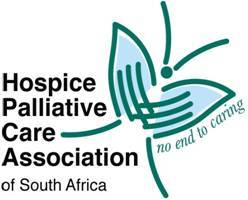“FOLLOW what you value,” is the advice of Callen Hodgskiss. As CFO of the Hospice Palliative Care Association of South Africa (HPCA) he knows what he is talking about. “I hope young financial professionals realize there are a lot of opportunities in the NGO sector. It is a dynamic environment and there is a lot that you can contribute. There is growing need for qualified people at NGOs and the salaries are becoming more and more market related.”
The Cape Town headquartered HPCA is an umbrella organisation of 140 independent member organisations offering their services at 166 delivery sites. About 4500 carers look after an average of 90,000 patients and their families per year - the combined budget of the members is in the region of half a billion rand. "Often people think of traditional in-patient facilities, but that is only 3 percent of what hospices do. The rest is home-based care in communities," Hodgskiss explains.
Work that matters
The 34-year old chartered accountant says that is wasn't "a cut-and-dried decision" to work for an NGO, but his CV reveals a passion for meaningful work. Among other development roles, he managed KPMG South Africa's Corporate Social Investment portfolio and co-founded Africa++, an enterprise cultivating social entrepreneurship in Africa. "It is important for me that my work matters. Obviously there are also amazing companies out there, but there is also a growing need for qualified people in the NGO world. You make a bit of a monetary sacrifice, but it is very rewarding."
The people that HPCA caters for are very diverse, says Hodgskiss. "Since the beginning hospices aimed to care for everyone but because this was dependant on voluntary input from communities, access to hospice care was, for the most part, limited to communities who were able to fund the provision of free palliative care. Since the beginning of this decade, however, our major focus has been in response to HIV and to help combat the impact of that disease on our society." The CFO notes that currently 67 percent of the hospice patients are infected with HIV. Most other patients have TB, Cancer or some other form of chronic illness. "Hospices are no longer just caring for dying people. We also care for children and older people with life threatening diseases - and their families. We treat people from time of diagnosis which means we now care for many people who will be able to live full lives after receiving our care; and we also play important role in educating communities on how to manage diseases such as HIV and TB."
 NGO world growing up
NGO world growing up
According to Hodgskiss there are significant differences between his work and that of corporate CFOs. "We deal differently with managing budgets and performance targets. It is a challenge, because our outcomes are often not as clearly measurable and are longer term. Where small businesses often look at their costs and profitability as outcomes, small NGOs are thinking from the heart and at 'softer' outcomes. That is one of the big issues for financial people in non-profit organisations: the financial drive is less strong than in for profit organisations and therefore doesn't receive the necessary focus. Although the NGO world is growing up, it hasn't grown up yet."
Another challenge for NGOs is the high level of accountability required. "Major donors like USAID ask for a lot of documentation and proof that money was not wasted and used for its purpose. Their grant rules are very rigorous." The American people, through USAID , provide roughly 20 percent of the budget for the Hospice network in South Africa, of which about half goes to capacity building programs and the rest goes directly to the member hospices. Provincial Government departments provide another 10 percent of the yearly budget and the rest comes from private donations, and through corporate social investment schemes (CSI).
Hodgskiss says he sometimes finds the business is also limited in its choice of activities by the earmarking of the funds he manages. "It is often hard to find money for things that are an essential part of the bigger picture, like marketing. There are no donors that are willing to fund that, because they want to send their money to the grassroots level. That can also cause tension with staff, especially when your colleagues have a corporate background. We sometimes can't spend money on certain things, even though we know it would be sensible to do so."
 Making hospices sustainable
Making hospices sustainable
"Short term scenario planning is also a big part of what I do. The funding thing can be quite stressful. It is very stop-start," Hodgskiss says "And funding can end without much notice." The CFO aims to make member organisations completely self-sustainable. "They have sustainability funds and we have warned them that funding can come to an end, but there is always a bit of reliance on our grant money. It has been a bit of a tough year with the recession and dwindling donations. We had to pull some funding and hospices had to retrench, but none of them have closed."
Still, there are things corporates can learn from the non-profit sector, Hodgskiss says. "We have a people-centred, compassionate approach, rather than being hard-nosed. It is all about listening and that way we can often find the win-win situations quicker. Another thing is that NGOs often collaborate better, because the focus is not so much on competition. Of course we do fight over grants and that can get antagonistic, but after that we usually work together positively."
If you also would like to share your ideas with the CFO community, please get in touch with us to arrange an interview with you. Please contact Jurriën Morsch on [email protected].











